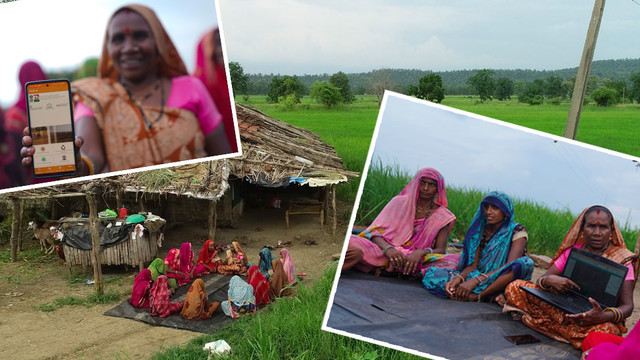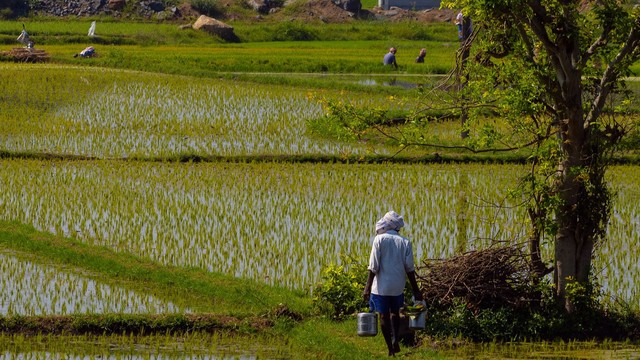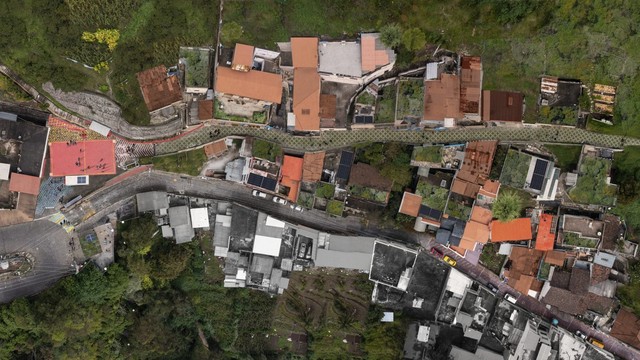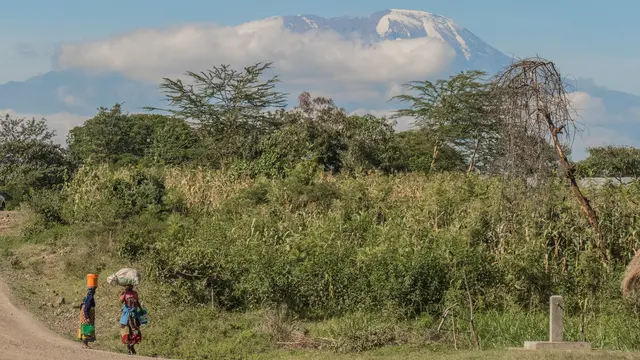Why the private sector must be included in efforts to curb deforestation
Making the links between green supplies chains, zero deforestation and the private sector at COP20 in Lima.


Marisa Carmargo presents approaches to equity in forest governance: Lessons for safeguard development at an event at COP20 in Lima (Photo: Donal Yeang via Flickr)
Greetings from the 20th Conference of the Parties (COP20) in Lima, Peru, where I have been involved in discussions around deforestation and how to shift towards zero deforestation in supply chains.
I presented at a panel co-hosted by IIED and The Centre for People and Forests (RECOFTC) on 'Approaches to equity in forest governance: Lessons for safeguard development', drawing on work on the role of the private sector in Reducing Emissions from Deforestation and Forest Degradation (REDD) (available on IIED's SlideShare site and below).
We began in 2013 looking at 115 REDD projects to try to understand how the private sector was engaged in the initiatives. To our surprise, we found that there were no clear links between the core business strategies of the private sector actors and the projects they were supporting.
REDD+ projects seemed to be concentrated in areas where small-scale agriculture and biomass energy production were the main threats to the forest, with fewer projects aiming to tackle deforestation resulting from large-scale business activities, such as agriculture commodity chains or other sectors.
This is a problem because without private sector buy-in and engagement, it will be challenging to reach scale.
Private sector commitments
However, it is not all bad news. Earlier this year, more than 130 country governments, civil society and private companies endorsed the so-called New York Declaration on Forests (PDF), including private sector commitments towards eliminating deforestation from supply chains.
But what does it mean to promote zero-deforestation supply chains in practice? In an effort to try to understand what this commitment might mean in practice, we are carrying out research to see how this ‘zero deforestation’ pledge could be integrated in the cocoa value chain. As part of this research, I travelled to Ghana to learn more about how this could work for the cocoa value chain there.
Ghana's cocoa sector
When it comes to cocoa, Ghana is important, providing more than 20 per cent of global supply. Nationally, it renders 22 per cent of total export earnings and sustains over 800,000 farmers across the country. It is a cash commodity that is sold at a set price, so farmers are keen to grow this crop.
And with our increasing global population, expanding middle class, and rising new emerging markets, consumption of chocolate is expected to grow rapidly. Where is the land going to come from to produce more of our beloved chocolate?
Even though some of us might disagree, cocoa is a cash crop, not a food crop. Many cocoa farmers may have never even tested chocolate. The cash it provides however can be important in giving farmers the purchasing power to acquire food and meet other needs.
Cocoa farming creates high demand for land. In countries like Ghana, it also competes with activities like mining, forestry, and subsistence agriculture. So zero deforestation has to be seen in the wider context of drivers of deforestation that coexist within landscapes.
The need for healthy ecosystems
Of course, nothing grows in a vacuum. A good crop depends on land productivity and this in turn depends on healthy ecosystems. One study (PDF) suggested that cocoa productivity can be increased when there are neighbouring forests, thanks to the forests providing ecosystem support.
This means it is important to manage the landscape in an integrated manner to ensure that different land uses co-exist. Diversifying production can for example help reduce risks for farmers, but also help with adaptation and mitigation against climate change. It can deliver increased productivity, but also improved livelihoods.
Zero-deforestation-plus
REDD became REDD+ because the international community realised that we need to promote reforestation to enhance carbon stocks, and promote sustainable management of forests and conservation together with avoiding deforestation. Following this lead, we propose that zero-deforestation commitments should be read as zero-deforestation-‘plus’.
Private sector actors throughout the value chain should join forces with governments and civil society to manage the landscape, restoring degraded land, and managing existing forests, as well as curbing deforestation.
In Ghana, for instance, several private companies are working with farmers to increase productivity while also enhancing their wellbeing. But there is a lack of coordination, with even the government not knowing who is doing what and where. Better coordination, including with other sectors, such as mining and the forest sector could increase the benefits. Institutions like the World Cocoa Foundation are key to helping this process.
Spreading the green cost
Of course, the chocolate value chain does not end with cocoa production. There are several actors along the value chain that also benefit from production of this commodity. Shouldn't these actors also help internalise the costs of sustainability?
Why should the burden to 'green' the value chain be loaded entirely on to the bottom of the chain, at land use level, when the production of chocolate generates emissions and other externalities through its entire value chain? Shouldn't we start talking about these emissions as well? As we shift towards more sustainable supply chains, zero-deforestation is just part of the equation.
Safeguards to promote sustainable private investments
One question from the audience in Lima was about how we could safeguard processes such as REDD+ from private actors, given concerns for instance about land grabbing in many countries.
My response was twofold. First we need to acknowledge that the private sector is not a homogeneous group. It includes farmers, small businesses, large corporations and many more in between.
Secondly, we will not ensure the rights of local people by shutting the private sector out of the process. It needs to be included, and can provide technical assistance, and funding to scale up efforts. But, yes, safeguards on equity and benefit sharing, among others, must be put in place to ensure a transparent and fair process for all involved. Climate change solutions will come from engaging all actors, fostering open discussion and finding solutions that work for all.
The 1965 Physics Nobel Laureate Richard Feynman once said: "We are at the very beginning of time for the human race. It is not unreasonable that we grapple with problems. But there are tens of thousands of years in the future. Our responsibility is to do what we can, learn what we can, improve the solutions, and pass them on."
Hopefully the findings of our study will inspire people to look at the problem with different eyes, and develop innovative solutions that will contribute to a more sustainable tomorrow.
Marisa Camilher Camargo (marisa.camargo@gmail.com) is a researcher at VITRI in the University of Helsinki, and a senior consultant at Indufor Oy. She is collaborating with IIED on a project looking into how to engage the private sector in REDD+ implementation.
For more information on IIED's research on greening the supply chain, contact Isilda Nhantumbo (isilda.nhantumbo@iied.org) or Marisa Camargo (marisa.camargo@gmail.com). This work is part of the Inclusive REDD+ project funded by the UK government.




